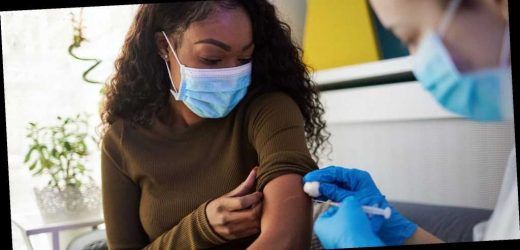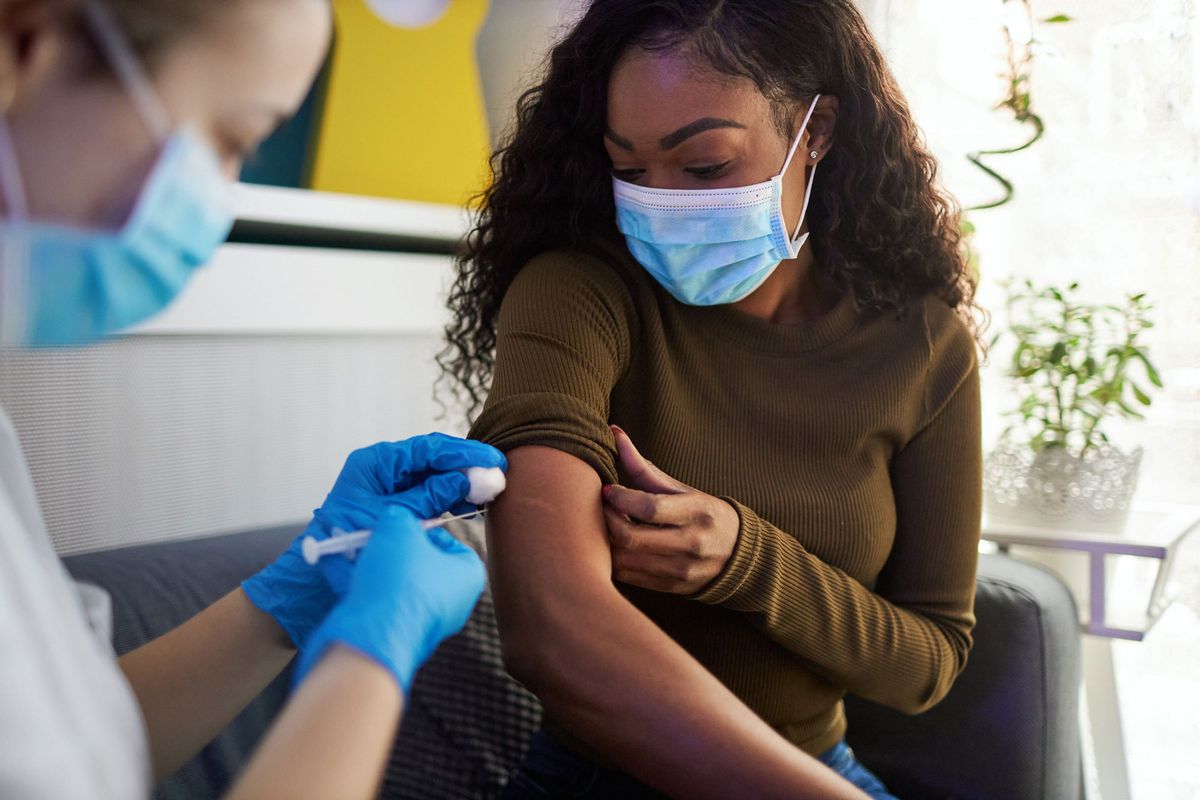When the pandemic hit, one pattern emerged early on: Despite being equally likely to contract COVID-19, studies showed it was men who were more likely to become very sick and die from it. And now, as millions of Americans are getting vaccinated, another difference in the sexes has emerged: Women are experiencing stronger side effects from the vaccines than men.
For example, in data collected from the first month of COVID-19 vaccinations, which included the Pfizer and Moderna vaccines, 79.1% of the vaccine side effects — like fever, chills, and headaches — reported to the CDC were in women, despite women receiving just 61.2% of the doses.
Doctors aren't phased. "I'm not at all surprised with this data showing women experiencing stronger side effects than men. In fact, this has actually been observed in the past among other vaccines," says Vivek Cherian, MD, a Baltimore-based internal medicine physician. "It seems to be consistent with flu vaccine and reactions women have in general to vaccines," seconds Erika Schwartz, M.D.
So, why is that? Well, when it comes to immunity, men are believed to be the weaker sex — and that's according to science. Because women have more reactive immune systems than men in general (they suffer from more autoimmune diseases), it makes sense they'd have a stronger response to a COVID-19 vaccine.
"Physicians suspect (though we actually don't know for certain!) that the reason likely has to do with estrogen," says Dr. Cherian. "Estrogen increases immune response while testosterone dampens it," Dr. Schrwartz adds. In addition to the influence of biology and genetics, there's another potential factor at play: "Women report information more than men, which could also account for the discrepancy," she says. (Men are also less likely than women to see doctors when they are sick.)
The reactions reported usually last 12-24 hours and are more pronounced with the second dose of Pfizer and Moderna vaccines. This is because with the second dose of any vaccine you receive, your body has already started to develop antibodies, Dr. Cherian explains. (Although the research didn't look at J&J, since it is only one dose, "the system will react faster thus reactions might occur sooner," Dr. Schwartz says.)
And, quick reminder, while this news admittedly kinda sucks for women, a noticeable response to a vaccine can also be a good sign that your body is reacting as it should: "Although unpleasant, side effects indicate that your immune system is functioning properly," says Dr. Cherian. "This is a good thing, and absolutely should not be a deterrent from getting the vaccine."
Source: Read Full Article



